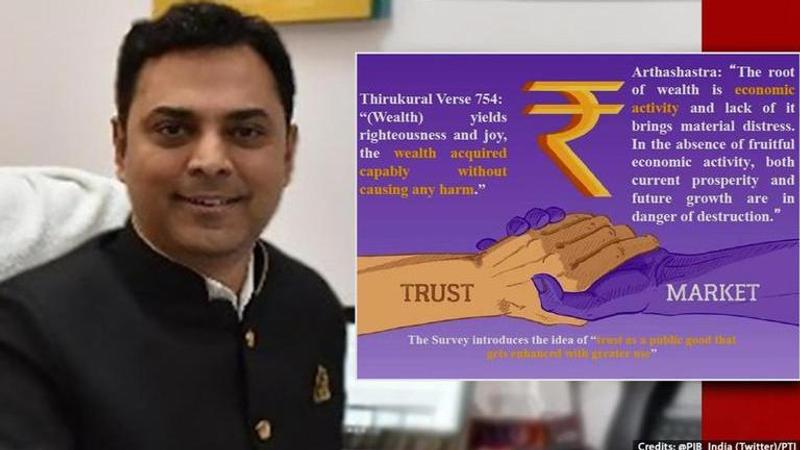Published 15:39 IST, January 31st 2020
Union Budget 2020: Economic Survey reveals importance of entrepreneurs in wealth creation
Ahead of the Union Budget 2020, the Economic Survey was tabled by the Finance Minister. The first 2 chapters focus on wealth creation and entrepreneurship.

Union Finance Minister Nirmala Sitharaman on Friday tabled the Economic Survey 2019-20 on the floor of the Parliament on the first day of the Budget session. It is a document that not only reviews the progress of the economy in the previous 12 months but also advocates requisite policy changes that are not necessarily binding on the government. The first two chapters of this year’s survey are based on wealth creation and entrepreneurship. Incidentally, wealth creation is also the overarching theme of the survey.
Chapter 1- Wealth Creation: The Individual Hand supported by the Hand of Trust
The chapter commences by pointing out that India was the dominant global economic power for more than three-fourth period of known economic history. Ancient classics such as Chanakya’s Arthashastra and Thiruvalluvar’s Thirukural have been cited to showcase that wealth creation was an integral part of India’s economic model for centuries. Contending that the country reverted to this model only in 1991 with the liberalization reforms, Chief Economic Advisor K Subramanian opines that there was a positive association between the rise in GDP and the wealth creation in stock markets.
Moreover, he states that there is a strong correlation between the wealth created by entrepreneurs and the benefits accrued to employees, suppliers and manufacturers. While highlighting the importance of economist Adam Smith’s ‘invisible hand’ theory, the survey stresses the need for a moral hand as well. Thus, the concept of trust as a public good has been introduced by the budget. According to Subramanian, economic activity can flourish only with high trust. The chapter also talks about enhancing economic opportunities and the government’s role as a “referee” in detecting malpractices.
Chapter 2- Entrepreneurship and Wealth Creation at the Grassroots
A key component of economic growth is the entrepreneurial activity. This chapter reveals that India has the third-largest entrepreneurial ecosystem in the world showcasing an annual growth rate of 12.2% from 2014-18 with a whopping 1,24,000 new firms being created in 2018. Acknowledging that India has very low rates of entrepreneurship in the formal economy, Subramanian calls for more movement of labour to entrepreneurial activities in sectors such as manufacturing and services. Thereafter, the survey reviews the entrepreneurial activities in agriculture, manufacturing, infrastructure and the service sector along with the district-level social and physical infrastructure.
As per the findings, the birth of new firms is spread across the country, moving beyond cities. Furthermore, super access to markets is associated with higher levels of entrepreneurial activity. For this purpose, Subramanian has urged for better connectivity of villages through tar roads. Another suggestion is to create more schools and colleges, with the possibility of exploring privatisation of education. This has been inspired by the fact that the high literacy rate of a district has a very positive impact on entrepreneurship.
Updated 15:39 IST, January 31st 2020




